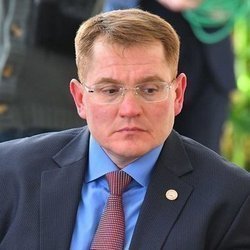There are no legal grounds for separate garbage collection in Tatarstan
The Arbitration Court of Tatarstan recognised the rightness of the monopoly regional operator, who refused the company in Almetyevsk to MSW separate collection for commercial reasons
Separate waste collection in Tatarstan is currently impossible from the point of view of the law — this fact has been suddenly discovered and confirmed by the decision of the Arbitration Court of the republic, having sorted out the claim of the company in Almetyevsk that wanted to hand over the waste to the regional operator in sorted form. Realnoe Vremya found out how this turned out to be possible in the republic, where regularly and with great fanfare they present equipped sites for separate collection of MSW, hold championships among schoolchildren for the best educational project on the topic, and eco-activists consider almost criminals those who do not sort garbage before throwing it away.
Expensive and no good
The Arbitration Court of Tatarstan refused to satisfy the claim of the owners of the Almetyevsk shopping centre Panorama to the regional operator for the management of MSW Grinta. The representatives of URS — Torgovy Dom PLC asked the court to oblige the regional operator to conclude a contract for garbage collection on the terms of separate waste collection in the commercial and administrative complex — and on the terms of a lower fee for waste removal corresponding to such an order. The reason for the refusal was the lack of a regulatory framework for the conclusion of such a contract.
“On the territory of the Republic of Tatarstan, a regulatory legal act regulating the procedure for MSW separate collection and the actual implementation by consumers of the separation of MSW according to the types of waste established by the regulatory legal act of the subject of the Russian Federation and the storage of sorted waste in separate containers for the corresponding types of MSW has not been adopted. The territorial scheme for waste management on the territory of the Republic of Tatarstan does not include places (sites) of separate accumulation of MSW. Consequently, the procedure for the separate accumulation of MSW on the territory of the Republic of Tatarstan cannot be implemented, since the norms regulating the implementation of the method of separate accumulation of MSW have not been defined, the competent authorities have not adopted the appropriate differentiated tariffs and standards for the separate accumulation of MSW, the territorial scheme of the treatment of MSW of the Republic of Tatarstan does not contain information about the places of accumulation and reception points of separate MSW," the court decision says.
As the owners of Panorama told Realnoe Vremya, at the end of last year Grinta terminated the contract for the provision of services for the treatment of MSW, which provided for payment “upon the fact”. They offered to conclude a new one — with payment according to the standard, per square metre of the building area.
The owners of the shopping centre found on Grinta website recommendations for concluding a contract, which indicated the possibility of using commercial accounting of MSW in a calculated way — based on the amount and volume of separately collected garbage on a specially equipped container site. URS — Torgoviy Dom claims that all the conditions of Grinta were fulfilled, but the regional operator did not conclude a contract with them on more favourable terms. And they went to court, but the court's decision disappointed them. The arbitration dispute, the company made it clear, can be continued.
“There is no appropriate infrastructure yet”

“Also, the court confirmed that the procedure for the separate accumulation of MSW on the territory of the Republic of Tatarstan cannot be implemented, since the norms regulating the implementation of the method of separate accumulation of MSW have not been defined, the competent authorities have not adopted the appropriate differentiated tariffs and standards for the separate accumulation of MSW, the territorial scheme of the treatment of MSW of the Republic of Tatarstan does not contain information about the places of accumulation and reception points of separate MSW," the court decision says.
According to Yarlychenko, MSW separate collection is an important but infeasible for objective reasons “part of the solution to the problem of excess garbage”:
“It significantly increases the volume of recycling and thereby minimise the amount of waste that has to be disposed. In our service area, a separate collection system is already being implemented in a pilot mode in a number of cities. Many container platforms are equipped with additional compartments for collecting fractions such as “plastic”, “paper”, “glass”. But it is too early to talk about a full-fledged launch of the system, since there is no appropriate infrastructure yet that could cover the entire volume of separately collected waste in the eastern zone of the Republic of Tatarstan. Currently, the concessionary agreement is being negotiated, which involves the construction of an intermunicipal complex for the treatment of MSW in the south-east of Tatarstan. It is planned that it will be equipped with automatic sorting lines and organic fraction composting sites. The complex will become the basis for a full-scale launch of a separate collection system.
The director general of Grinta expressed hope that by this time all the necessary regulatory legal acts that regulate the separate collection will be adopted in the republic:
“Now the corresponding differentiated tariffs and standards for the separate accumulation of MSW have not even been adopted. It is also necessary to update the territorial scheme, which strictly regulates all transport flows of MSW. The regional operator has no right to deviate from the requirements of this document approved by the resolution of the Cabinet of Ministers of the Republic of Tatarstan.
“The dispute has nothing to do with the issue of the separation of MSW”

According to Tygin, today regional operators have no real opportunity to carry out separate collection of MSW. For example, in Kazan and a number of large cities, container sites are already equipped, and the population is consciously approaching this issue, and in a number of districts of the republic, garbage removal from individual settlements has not been carried out at all recently. And separate collection, he is convinced, should be introduced in the republic simultaneously, but for now it is impossible:
“It's not enough just to separate the waste at the first stage, to put them in containers. It is necessary to create all the necessary infrastructure throughout the republic — from the container site to the disposal sites. In the same Agryz today, there is simply nowhere to take the waste sorted by the population — there are no waste sorting plants, such as in Kazan. And this is not a show-off?"
“I have seen many times how a garbage truck arrives at our container site and picks up garbage from containers with different inscriptions," Tatyana Dolina, a resident of Kazan, told Realnoe Vremya. “All this falls into the back, and this sight is very discouraging for those who, like me, are responsible for garbage. Why should I sort it, make myself uncomfortable if it's all in vain?"
“There is another operator working in Kazan, and I cannot be responsible for them," Svetlana Yarlychenko explained. “Well, our garbage is not mixed, dry waste is taken out separately. It should be understood that sorting at the initial stage does not solve the issue completely, then the waste is sorted. At the waste sorting plant, dry garbage is already divided into fractions, up to the colour of plastic bottles. Therefore, if one garbage truck takes dry waste from two containers, it does not mean that your work was in vain.”
However, such actions during garbage collection really undermine the confidence of uninformed citizens in the project. From this point of view, the position of the authorities and regional operators looks vulnerable: if the separate collection had already started working in full force today where there are conditions for it, and information would have been disseminated about it, then, according to the same Dolina, the effect of this would have been much greater than from the actions that many people they perceive it as a show-off.
Disposal at 8,4 percent
“The Resolution of the Cabinet of Ministers of the Republic of Tatarstan dated 12/21/2018 No. 1202 (as amended on 03/13/2021 No. 130) approved the Procedure for the accumulation of MSW (including their separate accumulation) on the territory of the Republic of Tatarstan, the republican ministry of construction explained to Realnoe Vremya. “The specified accumulation procedure is aimed at reducing the negative impact of MSW on the environment and human health, creating a system of separate accumulation of MSW in order to maximise the extraction of secondary material resources from MSW. According to paragraph 2.15 of the Accumulation Procedure, the dual scheme of accumulation of MSW is established as the main method of separate accumulation of MSW on the territory of the Republic of Tatarstan. When using the dual MSW accumulation scheme, the dry morphological components of MSW that are subject to disposal are placed in one container, and the morphological components of MSW that are not subject to disposal, including composite packaging, food waste and other organic waste, are placed in another container. The use of a dual scheme for the accumulation of MSW does not exclude the possibility of placing individual containers on the container site for the accumulation of food waste cleaned of packaging and impurities, mesh containers for the accumulation of plastic products that have lost their consumer properties.
The ministry of construction recalled that in many cities of the republic mesh containers for PET bottles, plastic containers from household chemicals, plastic cans are installed on container sites, and that there are recycling collection points from the population in the republic, where cardboard, paper, aluminum cans, PEFT bottles and others are used for recycling recycled waste is paid money.
“About 25% of container sites in the republic are equipped with containers for separate accumulation of MSW, the largest number of these container sites — 53% — falls on the city of Kazan," the department clarified. “The transition to a 'large-scale' separate accumulation of MSW is planned after the creation of the necessary infrastructure that allows the entire volume of accumulated municipal solid waste to be sent to processing facilities in order to maximise the extraction of secondary material resources for their subsequent disposal. The efficiency of separate accumulation of MSW directly depends on the efficiency of the MSW processing industry, its profitability, taking into account existing problems (low competitiveness of secondary raw materials compared to primary raw materials, including due to the lower quality of products made from recyclable materials; lack of stable demand for recyclable materials; complex production specifics in the disposal of certain types of waste, requiring high labour costs due to the heterogeneity of the disposed components by hazard classes).
When asked what percentage of the total amount of waste collected in Tatarstan is sorted at waste sorting plants and goes for recycling, the ministry of construction answered:
“In 2021, the share of solid municipal waste aimed at processing (sorting) in the total mass of solid municipal waste generated was 26,7 percent, the share of waste allocated for disposal as a result of separate accumulation and processing (sorting) of solid municipal waste in the total mass of solid municipal waste was 8,4 percent.”
The ministry also clarified that currently there are three waste sorting complexes in the republic — one in Kazan and two in Naberezhnye Chelny.
“To reduce the volume of MSW disposal, according to the Territorial Scheme, it is planned to build six waste sorting complexes for the selection of secondary material resources from MSW, and it is also planned to modernise one waste sorting complex in Naberezhnye Chelny with the introduction of production facilities for the disposal of MSW and the subsequent conversion of this complex into a waste processing plant," the ministry of construction of the Republic of Tatarstan added.